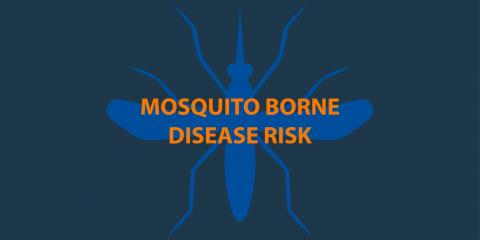Mosquito Borne Disease Risk Update

Late summer and early fall (until the first killing frost) is when the risk of acquiring a mosquito-spread disease is highest in New Hampshire. This year, there have been a number of mosquito batches from southern New Hampshire that were positive for West Nile Virus, and these plus the 4 WNV positive birds have largely driven our risk for this year.
On September 13th and 18th there were two mosquito batches that tested positive for Eastern Equine Encephalitis. EEE is a much more serious disease, so this raises the level of risk, especially in south central Rockingham County.
To reduce your risk, reduce the chances of being bitten by mosquitoes carrying the virus. Your tools include deciding where & when you’ll go outdoors, how much of your skin is exposed, and whether or not you’ll use repellants. The risk will sharply drop when we get a killing frost over ALL of New Hampshire.
More on repellants: https://extension.unh.edu/resource/insect-repellents-fact-sheet
More on EEE and managing mosquitoes: https://extension.unh.edu/resource/eastern-equine-encephalitis-and-mosquito-management-nh-fact-sheet
